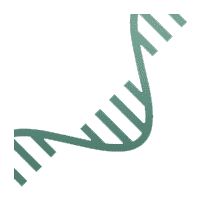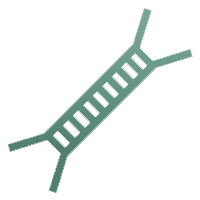tRNA Sequencing
Transfer RNAs (tRNAs), present in all living cells, are core components of protein synthesis machinery, making tRNAs ideal targets to gain physiological insights into environmental microbes. We offer sample-to-data tRNA sequencing service to sensitively detect tRNA mutations/variants/isoforms and accurately profile tRNAs. We provide tRNA-seq to help you analyze canonical and non-canonical tRNA functions and diseases.
Overview
tRNAs are a central component for the biological protein synthesis and among the most highly conserved in all living things. tRNAs are a type of ribonucleic acids that act as temporary carriers of amino acids, bring the specific amino acid to the ribosome based on the mRNA sequence. tRNAs pair with mRNA in an antiparallel and complementary manner, and each tRNA can base pair with a stretch of three nucleotides on mRNA. tRNA is defined as the most extensively modified RNA with, on average, 13 modifications per molecule. tRNA modifications play roles in decoding and other cellular processes and affect tRNA sequencing.
We provide efficient and quantitative tRNA sequencing based on the next generation sequencing methods for tRNA gene prediction, curation and annotation. Our scientists have developed state-of-the-art tRNA-seq methodologies integrating modification removal and small RNA sequencing optimized for tRNA to ensure the most reliable and accurate tRNA-seq data for study tRNA. In order to fully support your tRNA research, we also provide a wide range of NGS- or mass spectrometry-based technologies for tRNA modification profiling.
Features
| Any Species | Transcriptome-Wide | Bioinformatics Analysis | Validated Process |
|---|---|---|---|
| This method can be applied to any species, from microorganisms to humans. | Efficiently remove modifications in the tRNA to reach an unprecedented level of efficiency and accuracy. | Comprehensive tRNA transcriptome reference available; thorough tRNA annotation and functional analysis. | Optimized tRNA sequencing methodology and experimental process with rigorous QC procedures. |
Project Workflow

1. Sample Preparation
Relieve thermodynamically stable structural constraint; ribosomal RNA depletion; fragmentation

2. Library Preparation
Small RNA cDNA library preparation, and assessed and quantified by BioAnalyzer and RTQ-PCR.

3. Sequencing
Illumina HiSeq 2500

4. Data Analysis
Visualize and preprocess results, and perform custom bioinformatics analysis.

Bioinformatics Analysis Pipeline
In-depth data analysis:
- tRNA profiling
- Detect tRNA mutations/variants/isoforms
- Differential expression analysis of tRNA
- tRNA prediction and annotation
- tRNA transcription initiation and termination
- Annotation of intron-containing tRNA genes
- Comparison of global tRNA modification patterns
Sample Requirements
RNA sample (concentration ≥ 200 ng/uL, quantity ≥ 2 ug)
1.8 ≤ OD260/280 ≤ 2.3, OD260/230 ≥ 2.0, RIN ≥ 6.5, 28S:18S≥1.0. No significant degradation.
Sample Storage: RNA can be dissolved in ethanol or RNA-free ultra-pure water and stored at -80°C. RNA should avoid repeated freezing and thawing.
Shipping Method: When shipping RNA samples, the RNA sample is stored in a 1.5 mL Eppendorf tube, sealed with sealing film. Shipments are generally recommended to contain 5-10 pounds of dry ice per 24 hours.
Deliverable: FastQ, BAM, coverage summary, QC report, custom bioinformatics analysis.
References:
- Shepherd J and Ibba M. Bacterial transfer RNAs. FEMS Microbiology Reviews, 2015, 39: 280–300.
- Thornlowa B P, Hougha J, Roger J M, et al. Transfer RNA genes experience exceptionally elevated mutation rates. PNAS, 2018, 115(36): 8996–9001.
- Gogakos T, Brown M, Garzia A, et al. Characterizing expression and processing of precursor and mature human tRNAs by hydro-tRNAseq and PAR-CLIP. Cell Rep, 2017, 20(6):1463-1475.
- Zheng G, Qin Y, Clark WC, et al. Efficient and quantitative high-throughput tRNA sequencing. Nat Methods, 2015, 12(9):835-837.
